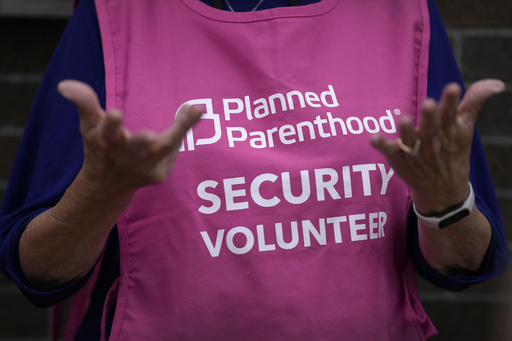In Iowa, a new law that prohibits most abortions after approximately six weeks of pregnancy is set to take effect on Monday. This change does not come as a shock to OB-GYN Sarah Traxler, who has seen abortion rights being eroded since her high school days in a conservative Louisiana town in the 1990s.
The law, passed by Iowa’s Republican-controlled Legislature last year, was initially blocked due to a lawsuit from various organizations. However, the Iowa Supreme Court ruled in June that there is no constitutional right to abortion in the state, paving the way for the law to be enforced starting July 29th.
Under the new law, abortions are banned after cardiac activity can be detected, which typically occurs around six weeks into a pregnancy. Previously, abortions were legal in Iowa up to 20 weeks of pregnancy. Limited exceptions to the law include cases of rape, incest, fetal abnormality, or when the life of the mother is at risk.
Abortion providers in Iowa have been making preparations for the implementation of the law. Planned Parenthood health center manager Alex Sharp mentioned that staff members have been working to accommodate patients seeking abortions before the legal limit takes effect. Some patients have been rescheduled to earlier dates, while others are being assisted in finding appointments out of state.
The landscape of abortion laws across the country has been constantly evolving since a Supreme Court decision in Dobbs v. Jackson Women’s Health Organization, leading to various restrictions and expansions of access in different states. Providers have been adapting to these changes, but the situation remains challenging.
Amid these developments, abortion rates have been on the rise in neighboring states like Minnesota and Illinois, where providers anticipate an increase in patients from Iowa seeking services. Planned Parenthood affiliates have been investing in resources and expanding facilities to accommodate the potential influx of patients.
As the new law takes effect in Iowa, advocates on both sides of the abortion debate are gearing up for what lies ahead. Maggie DeWitte, an advocate against abortion access in Iowa, acknowledges that some women may travel out of state for the procedure, emphasizing the need for continued education on available options.
While providers are operationally prepared for the law’s enforcement, the emotional and mental toll of the situation is a significant concern. Planned Parenthood’s Sharp highlighted the sensitivity of conversations with patients who may not be aware of the new law or its implications.
Despite the challenges posed by the new legislation, abortion providers in Iowa and neighboring states are working diligently to support individuals seeking reproductive healthcare amidst changing legal landscapes.
